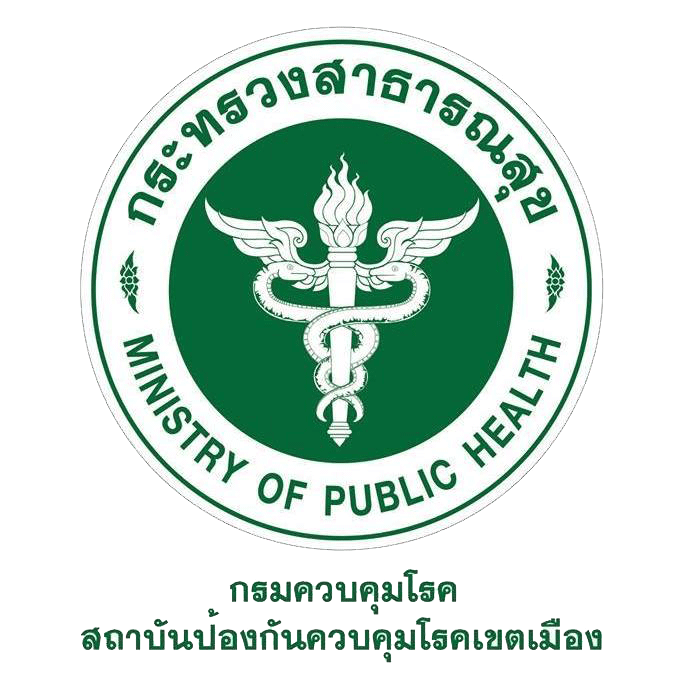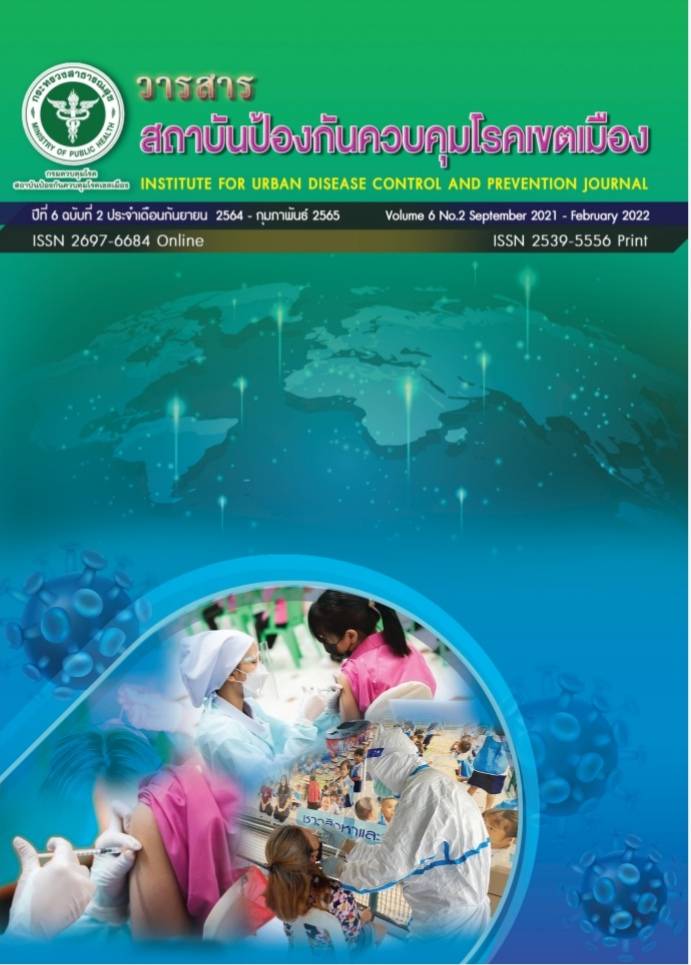A Literature Review on Antibiotic Use Behaviors Comparative Analysis
Main Article Content
บทคัดย่อ
การศึกษานี้มีวัตถุประสงค์เพื่อศึกษาปัจจัยที่เกี่ยวข้องกับพฤติกรรมการใช้ยาปฏิชีวนะ โดยยาปฏิชีวนะเป็นรูปแบบการรักษาชนิดหนึ่งที่สามารถรักษาโรคติดต่อที่มีสาเหตุจากเชื้อจุลชีพได้ ในปัจจุบันสถานการณ์ของเชื้อดื้อยาปฏิชีวนะได้เป็นปัญหาระดับโลกที่ต้องการการแก้ไขอย่างเร่งด่วนเนื่องจากส่งผลกระทบในแง่ลบต่อทั้งด้านเศรษฐกิจและสังคม การศึกษานี้จึงมุ่งที่จะวิเคราะห์ปัจจัยที่เกี่ยวข้องกับการเกิดพฤติกรรมการใช้ยาปฏิชีวนะเพื่อหวังว่าจะสามารถนำไปต่อยอดในการแก้ปัญหาเชื้อดื้อยาได้ งานวิจัยนี้มีวัตถุประสงค์เพื่อศึกษาปัจจัยที่ส่งผลกระทบต่อพฤติกรรมการใช้ยาปฏิชีวนะของประชากรในประเทศและสภาพสังคมประชากรศาสตร์ที่แตกต่างกัน ซึ่งจะวิเคราะห์เอกสารและงานวิจัยที่เกี่ยวข้อง ที่อ้างอิงจาก Knowledge, Attitude and Practices (KAP), Perceived Behavioral Control (PBC) และTheory of Planned Behavior (TPB) models ผลการศึกษาพบว่า พฤติกรรมการใช้ยาปฏิชีวนะมักเกี่ยวข้องกับความรู้ส่วนบุคคลในเรื่องดังกล่าว ความตระหนักถึงปัญหาเชื้อดื้อยา ทัศนคติต่อเรื่องเชื้อดื้อยาและปัจจัยทางด้านประชากรศาสตร์ต่างๆ เช่น เพศ อายุ สถานะทางสังคม ระดับการศึกษา รายได้ และอาชีพ เป็นต้น นอกจากนี้สวัสดิการสังคมต่างๆ อาจมีผลกระทบต่อพฤติกรรมการใช้ยาปฏิชีวนะ เนื่องจากกลุ่มบุคคลที่รายได้ตํ่าและมีความต้องการใช้จ่าย หากเจ็บป่วยอาจจะมีแนวโน้มที่จะรับประทานยาปฏิชีวนะด้วยตนเองแทนที่จะไปพบแพทย์ เพื่อที่จะหายป่วยและสามารถกลับไปทำงานได้ รวมถึงมาตรการหรือกฎหมายของภาครัฐที่กำกับไม่ให้บุคคลทั่วไปสามารถซื้อยาปฏิชีวนะรับประทานได้เองอาจมีส่วนช่วยในการบรรเทาปัญหาเชื้อดื้อยาได้ สามารถสรุปได้ว่า ปัจจัยที่เกี่ยวข้องกับพฤติกรรมการใช้ยาปฏิชีวนะสามารถแบ่งได้ออกเป็นสองระดับ ได้แก่ ระดับบุคคล ซึ่งรวมถึง ความรู้ ความตระหนัก ทัศนคติต่อเรื่องเชื้อดื้อยาและระดับสังคมหรือระดับชาติ ได้แก่ มาตรการต่างๆที่เกี่ยวข้องกับการควบคุมปัญหาเชื้อดื้อยาในสังคมซึ่งในการจัดการกับปัญหาดังกล่าว มีความจำเป็นที่ต้องพิจารณาทั้งสองระดับไปควบคู่กัน
Article Details

อนุญาตภายใต้เงื่อนไข Creative Commons Attribution-NonCommercial-NoDerivatives 4.0 International License.
บทความที่พิมพ์ในวารสารสถาบันป้องกันควบคุมโรคเขตเมือง ถือว่าเป็นผลงานวิชาการ งานวิจัยและวิเคราะห์ ตลอดจนเป็นความเห็นส่วนตัวของผู้เขียนเอง ไม่ใช่ความเห็นของสถาบันป้องกันควบคุมโรคเขตเมือง หรือคณะบรรณาธิการแต่ประการใด ผู้เขียนจำต้องรับผิดชอบต่อบทความของตน
เอกสารอ้างอิง
Reference
National Cancer Institute, U.S.A. Antibiotics. [cited on 2021 Nov 18] Available from: https://www.cancer.gov/publications/dictionaries/cancer-terms/def/antibiotic
Centers for Disease Control and Prevention, U.S.A. About Antibiotic Resistance. [cited on 2021 Nov 18] Available from: https://www.cdc.gov/drugresistance/about.html
Kathrin I. Mohr, How to Overcome the Antibiotic Crisis. Springer, Cham, Switzerland. 2016, 1, 237-272. https://doi.org/10.1007/82_2016_499
Charles W. Knapp, Jan Dolfing, Phillip A. I. Ehlert and David W. Graham, Evidence of Increasing Antibiotic Resistance Gene Abundances in Archived Soils since 1940. Environ. Sci. Technol. 2010, 44, 2, 580–587. Available from: https://doi.org/10.1021/es901221x
C. Lee Ventola, The antibiotic resistance crisis: part 1: causes and threats. P & T. 2015, 40, 4, 277-283. Available from: https://www.ncbi.nlm.nih.gov/pmc/articles/PMC4378521/
The Australian Government Department of Health and Department of Agriculture, Australia. What causes AMR? [cited on 2021 Nov 20] Available from: https://www.amr.gov.au/about-amr/what-causes-amr
World Health Organization. WHO publishes list of bacteria for which new antibiotics are urgently needed? [cited on 2021 Nov 25] Available from: https://www.who.int/news/item/27-02-2017-who-publishes-list-of-bacteria-for-which-new-antibiotics-are-urgently-needed
Thailand’s National Strategic Plan on Antimicrobial Resistance 2017-2021. [cited on 2021 Nov 26] Available from: https://rr-asia.oie.int/wp-content/uploads/2020/03/thailand_thailands-national-strategic-plan-on-amr-2017-2021.pdf
Intahphuak S, Apidechkul T and Kuipiaphum P. Antibiotic resistance among the Lahu hill tribe people, northern Thailand: a cross-sectional study. BMC Infect Dis 21. 2021, 385. Available from: https://doi.org/10.1186/s12879-021-06087-72021
Chanvatik S, Kosiyaporn H, Lekagul A, Kaewkhankhaeng W, Vongmongkol V, Thunyahan A, Tangcharoensathien V, Knowledge and use of antibiotics in Thailand: A 2017 national household survey. PLOS ONE. 2019, 14, 8. Available from: https://doi.org/10.1371/journal.pone.0220990
Saengcharoen W, Lerkiatbundit S and Kaewmang K, KNOWLEDGE, ATTITUDES, AND BEHAVIORS REGARDING ANTIBIOTIC USE FOR UPPER RESPIRATORY TRACT INFECTIONS: A SURVEY OF THAI STUDENTS. The Southeast Asian journal of tropical medicine and public health. 2012, 43, 5, 1233-1244. Available from: https://www.tm.mahidol.ac.th/seameo/2012-43-5-full/21-5282-12.pdf
National Cancer Institute, U.S.A. drug resistance. [cited on 2021 Nov 23] Available from: https://www.cancer.gov/publications/dictionaries/cancer-terms/def/drug-resistance
National Institute of Allergy and Infectious Diseases, U.S.A. Causes of Antimicrobial (Drug) Resistance. [cited on 2021 Nov 24] Available from: https://www.niaid.nih.gov/research/antimicrobial-resistance-causes
David H. Howard, R. Douglas Scott, II, Randall Packard, DeAnn Jones, U.S.A. The Global Impact of Drug Resistance. Clinical Infectious Diseases. 2003, 36, S4–S10. Available from: https://doi.org/10.1086/344656
World Health Organization. Antimicrobial resistance. [cited on 2021 Nov 26] Available from: https://www.who.int/news-room/fact-sheets/detail/antimicrobial-resistance
Martinez, L. S., & Lewis N. The Moderated Influence of Perceived Behavioral Control on Intentions Among the General U.S. Population: Implications for Public Communication Campaigns. Journal of health communication. 2016, 21, 9, 1006–1015. Available from: https://doi.org/10.1080/10810730.2016.1204378
Médicins du Monde. The KAP Survey Model (Knowledge, Attitudes, and Practices). The Strengthening Partnerships, Results, and Innovations in Nutrition Globally project, 2011. Available from: https://www.spring-nutrition.org/publications/tool-summaries/kap-survey-model-knowledge-attitudes-and-practices
Fan Y, Zhang S, Li Y. et al. Development and psychometric testing of the Knowledge, Attitudes and Practices (KAP) questionnaire among student Tuberculosis (TB) Patients (STBP-KAPQ) in China. BMC Infect Dis 2018, 18, 213. Available from: https://doi.org/10.1186/s12879-018-3122-9
Ibrahim MIM, Babar Z-ud-din, Wertheimer AI, Arafat Y and Ibrahim M. The Use of Measurements and Health Behavioral Models to Improve Medication Adherence, In: Social and administrative aspects of pharmacy in low- and middle-income countries: Present challenges and future solutions. Amsterdam: Academic Press. 2018, 53–69. Available from: https://doi.org/10.1016/B978-0-12-811228-1.00004-2
Byrne MK, Miellet S, McGlinn A, Fish J, Meedya S, Reynolds N, et al. The drivers of antibiotic use and misuse: The development and investigation of a theory driven community measure. BMC Public Health. 2019, 19, 1425. Available from: https://doi.org/10.1186/s12889-019-7796-8
Ancillotti M, Eriksson S, Veldwijk J, Nihlén Fahlquist J, Andersson DI, Godskesen T. Public awareness and individual responsibility needed for judicious use of antibiotics: A qualitative study of public beliefs and perceptions. BMC Public Health. 2018, 18, 1153. Available from: https://doi.org/10.1186/s12889-018-6047-8
Vallin M, Polyzoi M, Marrone G, Rosales-Klintz S, Tegmark Wisell K, and Stålsby Lundborg C. Knowledge and attitudes towards antibiotic use and resistance - a latent class analysis of a Swedish population-based sample. PLOS ONE. 2016, 11, 4. Available from: https://doi.org/10.1371/journal.pone.0152160
Barchitta M, Sabbatucci M, Furiozzi F, Iannazzo S, Maugeri A, Maraglino F, et al. Knowledge, attitudes and behaviors on antibiotic use and resistance among healthcare workers in Italy, 2019: Investigation by a clustering method. Antimicrobial Resistance & Infection Control. 2021, 10, 134. Available from: https://doi.org/10.1186/s13756-021-01002-w
Mazińska B, Strużycka I, Hryniewicz W. Surveys of public knowledge and attitudes with regard to antibiotics in Poland: Did the European Antibiotic Awareness Day campaigns change attitudes? PLOS ONE. 2017,12, 2. Available from: https://doi.org/10.1371/journal.pone.0172146
Ong S, Nakase J, Moran GJ, Karras DJ, Kuehnert MJ, Talan DA. Antibiotic use for emergency department patients with upper respiratory infections: Prescribing practices, patient expectations, and patient satisfaction. Annals of Emergency Medicine. 2007, 50, 3, 213–20. Available from: doi: 10.1016/j.annemergmed.2007.03.026
Vanden Eng J, Marcus R, Hadler JL, Imhoff B, Vugia DJ, Cieslak PR, et al. Consumer attitudes and use of antibiotics. Emerging Infectious Diseases. 2003, 9, 9, 1128–35. Available from: https://doi.org/10.3201/eid0909.020591
Waaseth M, Adan A, Røen IL, Eriksen K, Stanojevic T, Halvorsen KH, et al. Knowledge of antibiotics and antibiotic resistance among Norwegian pharmacy customers – a cross-sectional study. BMC Public Health. 2019, 19, 1, 66. Available from: https://doi.org/10.1186/s12889-019-6409-x
Pan A, Buttazzi R, Marchi M, Gagliotti C, Resi D, Moro ML. Secular trends in antibiotic consumption in the adult population in Emilia-Romagna, Italy, 2003–2009. Clinical Microbiology and Infection. 2011, 17, 11, 1698–703. Available from: https://doi.org/10.1111/j.1469-0691.2011.03500.x
Oumgerd P, Kummabutr J, and Thongbai W. Factors Predicting Antibiotic Use Behavior Among Healthcare Volunteers in Pathumthani Province, Thailand. Journal of Royal Thai Army Nurses [Internet]. 2019, 20, 1, 101-9. Available from: https://he01.tci-thaijo.org/index.php/JRTAN/article/view/184929
Sukphaiboon S, Apinandecha C and Chaisira K. Antibiotics use behavior of patients in Srangsoke, Ban Mo District. Saraburi Province. Proceeding of the 3rd National Research Conference and Research Progress towards the 2nd Decade: Research Integration Use of knowledge towards Sustainability; 2016 June 17; Nakhon Ratchasima College, Nakhon Ratchasima Province. [Internet]. 2016. Available from http://journal.nmc.ac.th/th/admin/Journal/2559Vol4No1_53.pdf. (In Thai)


